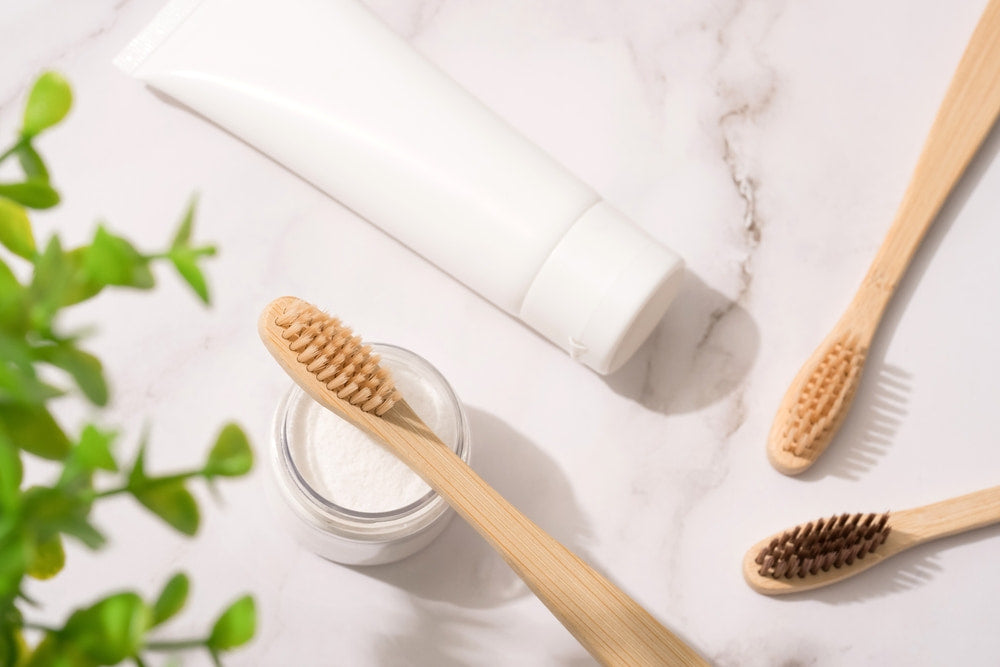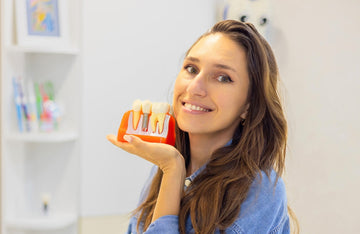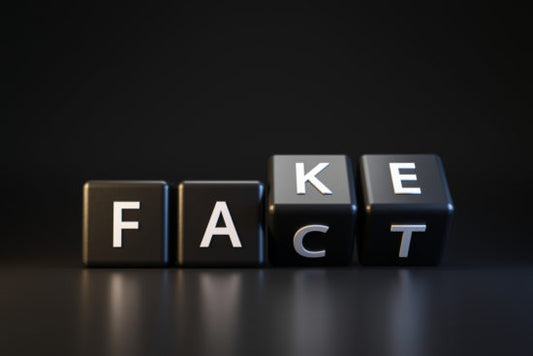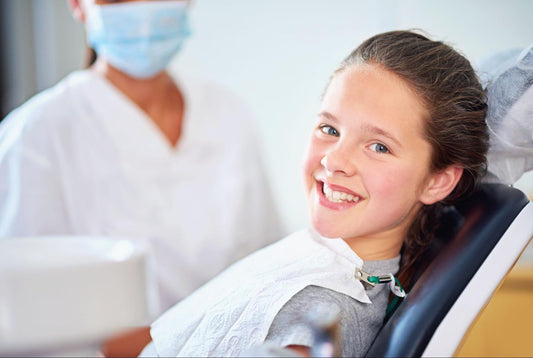Are Toothpastes Tested on Animals & How is it done? - What is different about Enlighten Toothpastes?

Have you ever wondered if your toothpaste is tested on animals and how?
Taking it a step further you may have also wondered if vegan toothpastes exist and if they are effective enough.
To begin with, the short answer is that some toothpastes are tested on animals, while others are not.
The extent and nature of animal testing in the toothpaste industry depend largely on the policies of the brand, the ingredients used, and the regulations in the countries where the products are sold.
This article provides an in-depth view of this subject along with disclosing what applies to Enlighten.
Is Toothpaste Tested on Animals?
As already mentioned, there are many brands out there that follow this testing procedure.
As it goes with many other cosmetics, many big brands test toothpaste on animals.
Animals (especially mammals) serve as a means to verify if a product is safe for human consumption or use due to similar physiological traits to people.
So, it became a common testing process.
Why is Toothpaste Tested on Animals?
It primarily occurs for safety and regulatory reasons.
Manufacturers may test the ingredients or the final product on animals to assess potential toxicity, allergic reactions, and long-term effects, such as cancer risks or reproductive harm.
This testing ensures the product is safe for human use and complies with regulatory standards.
In some countries where alternative methods to animal testing are not accepted or deemed sufficient by the authorities, this type of testing is the only way producers can get sales approval.
How is Toothpaste Tested on Animals?
The testing methods can vary, but more often they involve exposing animals, such as rats, rabbits, or guinea pigs, to the ingredients or the product itself.

The testing procedures tend to include:
1. Skin Irritation Tests: In these tests, researchers apply the toothpaste or its ingredients on the animals’ skin, usually rabbits, to check for irritation, redness, or swelling. Then, they observe the animals to monitor any adverse reactions.
2. Oral Toxicity Tests: In these cases, scientists feed the animals with toothpaste or its ingredients to determine the potential toxic effects when ingested. Respectively, they monitor the animals for symptoms such as weight loss, organ damage, or even death.
3. Eye Irritation Tests: A small amount of the product is placed in the animal’s eyes to assess irritation, swelling, or ulceration. This test is particularly controversial due to the pain and distress it causes to the animals.
4. Chronic Toxicity and Carcinogenicity Tests: These long-term studies involve exposing animals to the product or its ingredients over an extended period, often the majority of the animal's lifespan, to observe for chronic health issues like cancer.
Are There Alternatives to Animal Testing?
Sure there are.
Many companies have committed to cruelty-free practices, avoiding animal testing altogether.

They often rely on alternative methods, such as in vitro (test tube) testing, computer modelling, and using ingredients already known to be safe.
Do Cruelty-Free/Vegan Toothpastes Exist?
Absolutely.
Cruelty-free or vegan toothpastes exist in the market although they don’t have the same meaning.
The growing movement towards cruelty-free products worldwide has also led to the production of toothpaste that doesn’t involve animal testing by many companies in the field.
What Is a Cruelty-Free/Vegan Toothpaste?
Cruelty-free toothpastes are made without any involvement in animal testing throughout the entire production process. This includes everything from sourcing ingredients to the final stages of testing and manufacturing.
Instead of relying on animal testing, these companies use alternative methods and pre-approved ingredients to ensure their products are safe and effective.
The Key Features of Cruelty-Free Toothpaste
These are the traits of a cruelty-free toothpaste:
· No Animal Testing: Brands that produce cruelty-free toothpaste do not carry out any experiments or tests on animals to ensure product safety or effectiveness. They use humane alternatives, such as in vitro testing, computer simulations, and trials with human volunteers, to meet the safety standards.
· Ethical Ingredient Sourcing: Cruelty-free toothpaste manufacturers carefully select their ingredients. They are sourced from suppliers that follow cruelty-free practices. These companies avoid ingredients that are either derived from animals or have been tested on animals, often opting for natural, plant-based alternatives.
· Transparent Labelling: To help consumers easily identify cruelty-free products, these brands display recognisable logos or labels on their packaging.
The Key Features of Vegan Toothpaste
Vegan toothpaste has slightly different key features from its cruelty-free cousin.
· No Animal Ingredients or By-Products. Vegan toothpaste is made entirely from plant-based or synthetic ingredients while excluding common animal-derived substances and animal by-products.
· Natural and Organic Ingredients: Many vegan toothpastes use natural and organic ingredients, avoiding synthetic chemicals and artificial additives. Common ingredients include baking soda, coconut oil, aloe vera, and essential oils for flavouring and antibacterial properties.
· Sustainable and Eco-Friendly Packaging: Vegan toothpaste brands often prioritise sustainability, using recyclable, biodegradable, or even plastic-free packaging
· Transparent Labelling. Same as manufacturers of cruelty-free toothpaste, vegan toothpaste brands use transparent labelling in their packaging to inform consumers about their ethical practices.
· Possible Animal Testing (!). It should be noted that vegan kinds of toothpaste may still undergo animal testing. So, make sure you read their package in detail.
FAQs
1. Why Do Some Companies Test Toothpaste on Animals?
Companies may test toothpaste on animals to ensure the safety of the ingredients and the final product.
This testing is sometimes required by regulatory authorities, especially in regions with strict safety standards and it assesses potential toxicity, irritation, and long-term effects.
2. Why Choose Cruelty-Free Toothpaste?
Choosing cruelty-free toothpaste is a choice that reflects a commitment to ethical consumerism, animal welfare, and overall health.
By supporting the humane treatment of animals, the development of alternative methods, the promotion of innovation, and the alignment with broader ethical values you contribute to a better and sustainable living.
3. Is Vegan Toothpaste Equally Effective?
Not following animal testing in vegan toothpaste manufacturing doesn’t reduce their effectiveness. Therefore, you should not worry about your toothpaste's effectiveness if it’s vegan - you should always look a the effectiveness of the ingredients themselves. You have a win-win scenario: Clean, strong teeth, and no harm to animals.
Light Up Your Smile With Our Vegan Toothpaste!
Why choose a toothpaste that has undergone animal testing and not go for a vegan, cruelty-free one when you can?
Especially when you can have a vegan and a whitening toothpaste in just one package? Our Enlighten White Toothpaste and Enlighten Serum for Tooth Sensitivity & Enamel Repair represent your ultimate dental care combo.

Recommended by top cosmetic dentists, these premium cruelty-free toothpaste and serum repel both plaque and stains offering you cleaner and brighter teeth over time without hurting animals!
Make the ethical choice for your teeth today. Choose the Enlighten Smiles Vegan Toothpaste Collection today and let your smile shine.






